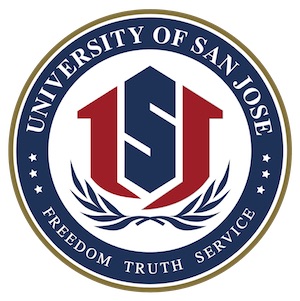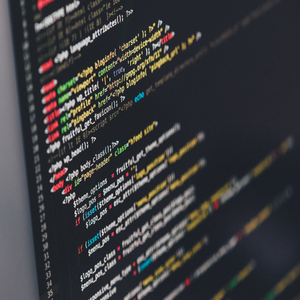Product Description
-
No Job Offer No Pay
Your success will be achieved with the help of our high quality program. If you cannot get a job offer within six months after graduation, you won’t need to pay for the tuition
-
Jumpstart your Career
The start pay ranging from $100K – $125K and as high as $150K
-
Instructors from Industry leaders
Senior software engineers with tremendous experiences and working on the top industry leader companies in Silicon Valley are selected to be the instructors
Course Description
Data Science Fellowship is a data science training program, fully funded by the University of San Jose. This 12-week program is a bridge to a career in Data Science. Based in the center of Silicon Valley, this program enables fellows to learn the industry-specific skills needed, gain hands-on experiences on real-world datasets, and be ready to work in the growing field of big data.
Our 12 weeks immersive program covers the necessary tools and conceptions used by data scientists in the industry, including Python, SQL, machine learning, regression, big data. When you graduate, you will be ready to be a data scientist in a real world.
Course Outline
Chapter One
Section Outlines
Fundamentals
- Introduction to Big Data, Data Science, and Predictive Analytics
- Fundamentals of Data Mining
- Introduction to R Programming Fundamentals of Data Science
- Python Programming
- Data Exploration, Visualization, and Feature Engineering
- Machine Learning Fundamentals
- Hands-On Labs: Data Exploration, Visualization, and Feature Engineering
Chapter Two
Section Outlines
Core Data Science (1)
- Introduction to Predictive Modeling
- Decision Tree Learning
- Statistical Inference
- Bayesian Methods
- A/B Testing
- Multi-Armed Bandit
- Hands-On Labs: Building a Classifier
Chapter Three
Section Outlines
Core Data Science (2)
- Linear Regression
- Logistic Regression
- Regularized Regression Models
- Gradient Descent
- Hands-On Lab: Building a Regression Model
Chapter Four
Section Outlines
Core Data Science (3)
- Supervised Machine learning
- Classification
- Validation
- Ensemble methods
Chapter Five
Section Outlines
Core Data Science (4)
- K-Means Clustering
- Topic modeling(NMF, LDA), NLP
- Hands-On Lab: Using K-Means Clustering Recommender Systems
Chapter Six
Section Outlines
Applied Data Science (1)
- Network Analysis
- Matrix Factorization
- Time Series
- Hands-On Lab: Deploying a Real-Time Prediction Endpoint
Chapter Seven
Section Outlines
Applied Data Science (2)
- Hadoop
- Hive
- MapReduce
- Hands-On Labs: Creating a Hadoop Cluster and Writing Hive Queries Handling Real-Time and Streaming Data
Chapter Eight
Section Outlines
Applied Data Science (3)
- Data Visualization with D3.js
- Data Products
- Case Study
Hands-on Labs
Chapter Nine
Section Outlines
Caspstone Projects
Onsite Interviews
FAQ
What is the admissions process?
The complete admissions process consists of an online application, a take home assessment and two technical interviews with faculty. For the Data Science program, you will complete our take-home challenge to assess your quantitative and programming skills. This assessment focuses on Python, SQL, and statistical data analysis. Two technical interviews will follow. The first evaluates your experience with programming in Python. The second covers topics in probability, statistics, experiment design, and basic modeling. Each step in the admissions process is contingent on passing the previous one.
How long does the admission process take?
The first step of the process is a take-home challenge. We suggest you return it within 7 days, but there is no official deadline. After you return the take home, the 2 interviews can take anywhere from 1-3 weeks, depending on interview schedules. After each step in the admissions process, you can expect to hear back from Admissions regarding the next step within 7 business days.
What previous experiences do I need to have?
In the admissions process, we look for backgrounds in a quantitative discipline including foundational statistics, probability, linear algebra, and mathematics. We expect a strong working knowledge of at least one programming language (we use Python). The skills we screen for in the admissions are highly learnable for anyone with a background in engineering of any kind, data analysis, or the quantitative sciences.
What backgrounds do students come from?
Students can have very different backgrounds. Common backgrounds include engineers, scientists, and analysts.
What is the program commitment?
The Data Science Immersive is an intensive program that runs 12 weeks (full-time) and teaches both the hard and soft skills needed for a career in the data science industry. Students complete 8 weeks of intense structured curriculum, solving problems with real data sets and picking up the practical skills that hiring partners care about. The course also includes 2 weeks to complete the capstone projects and 2 weeks for interview coaching and introductions to partner companies.
What will I learn in the data science program?
The Data Science Immersive at USJ is a hands-on, project-based program that trains participants to solve data science problems. Through working with messy, real-world data sets, students gain experience across the data science stack — data munging, exploration, modeling, validation, visualization, and communication. The program is based in Python, and utilizes tools and libraries including pandas, matplotlib, numpy, pymc, and scikit-learn. As data sets get larger, we introduce tools like SQL and NoSQL.
What does a typical day look like?
A typical day begins at 9:30am with a short quiz to test your knowledge of previous concepts introduced in the course. Instruction begins at 10am with a lecture introducing the day’s topic and theory. For the rest of the morning you will be working through a hands-on exercise where concepts from lecture will be applied. The afternoon follows a similar pattern to the morning by beginning with a lecture that dives deeper into the day’s topic. The rest of the day you will be pair programming with another student to complete a longer and more in-depth exercise.
What can I expect by the end of this program?
By the end of the program you can be expected to have a solid grasp on a breadth of machine learning and statistical theory. You’ll also have built numerous data science applications and will know enough to be a successful data scientist in industry. The program culminates with a personal capstone project focused on synthesizing the core concepts learned throughout the course.


Reviews
There are no reviews yet.